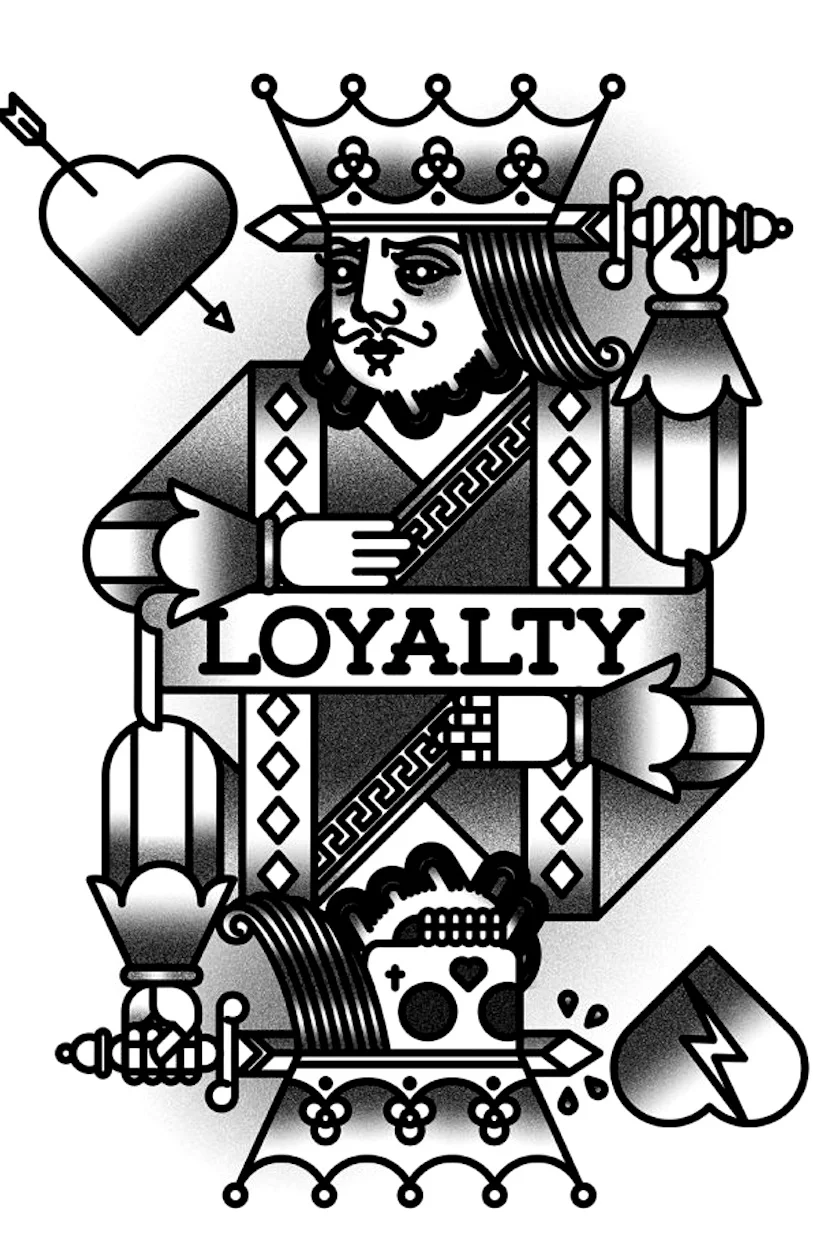Weaponizing Loyalty
by Liz Dadanian
For most people the word “loyalty” conjures a sense of belonging, faithfulness, and allegiance. Acting in a loyal manner makes us feel like we have done the right thing. It creates a sense of deep belonging and convinces us that we are being a good person. Loyalty is a foundational element to healthy relationships. Some people attribute loyalty to their pets who seem to love them no matter what. We even extend a sense of loyalty to our schools, sports teams, brand names, countries, and ethnicities.
Loyalty is also a concept that pops up quite a bit in the workplace. We are often drawn to companies because of their mission or our enthusiasm for the products they produce. This kind of loyalty can have a lot of benefits, like; lower recruiting costs, higher levels of engagement, and better retention rates. Feeling a sense of loyalty to one’s company can create strong interpersonal bonds and enhance accountability. These are all attributes required for high performing teams.
Loyalty has a dark side though. Have you ever worked for a boss or leader who demands loyalty? The subtext of such a requirement is, “I need to be sure that you’re the type of subordinate who will always side with me.” The subordinate’s unspoken hope is that the cooperation will, at a minimum, secure their existing job and, if lucky, may result in future promotions. If things ever get too messy, the subordinate can always hide behind the veil of “following orders.” These common behaviors have weaponized the virtue of loyalty. This weaponization is what gave rise to the “company man” syndrome that prevailed for most of the 20th century and still exists today.
Plain and simple, when a leader demands loyalty from their team in exchange for favor or protection it is a manipulation. This tactic keeps working because those in power positions have twisted the standard of loyalty in their favor. Once the culture has adopted the warped behavior and attached it to an altruistic trait like loyalty, they have you hooked. It is almost impossible for any of us to consider openly acting in a way that is viewed as disloyal by our cohort or community. Additionally, most of us won’t act in a way that causes immediate harm to ourselves, like losing a good job.
It is unfortunate that many organizations miss the fact that continuing to value results over behavior will perpetuate these problems. The current rewards system has spawned a generation of workers who still believe that being loyal means not questioning or offering a dissenting opinion. Some employees still wear weaponized loyalty as a badge of honor.
So why does any of this matter? People have been putting up with subpar bosses and employee complacency for ages. It’s just part of business. Perhaps this mindset worked in the past when it was easier to maintain an advantage because the world moved more slowly. Most businesses could afford quite a bit of waste. But times have changed. The world is moving at breakneck speed and the only way for companies to thrive is to foster transparency, constructive conflict, and faster problem solving. Allowing unquestioned loyalty in the workplace gets in the way of meaningful progress because it:
· Reinforces unhealthy power dynamics between bosses and their direct reports
· Rewards group think and a complacent culture
· Stunts growth opportunities because subordinates are always having to ask for permission
· Results in mediocre innovation at best
· And of course, it allows the emperor to parade endlessly without any clothes
Future business success depends on learning new skills. For businesses to thrive in the current world of exponential change, leaders must turn their attention to building trust. Building trust can only happen over time and is earned through the consistent demonstration that you are willing to do what you say and that you model what you espouse. It’s a long road, but establishing trust has proven business benefits:
· Enablement of open and honest dialogue
· Creation of a platform for healthy conflict
· Allowance for others to be their authentic selves
· Increased sense of autonomy, ownership, and well-being
· Openness to risk taking and better decision making
While the business imperative stands on its own, there is a more human and compelling reason to change. Most of us will spend over 80,000 hours at work before we retire. Even if you are lucky enough to live to be 110 years old, that is a very significant portion of your life. As leaders, part of our legacy should be that we used our influence to make things better for others. Creating workplaces based on trust, between equals, creates fertile ground for individuals to have an elevated experience by building real, meaningful, and lasting relationships. Trust me on this one.
Check out the following for more information on how to build trust at work…
https://hbr.org/2014/06/proven-ways-to-earn-your-employees-trust
https://www.cu.edu/sites/default/files/ExecSummaries-The_Speed_of_Trust.pdf
https://www.ted.com/talks/worklife_with_adam_grant_how_astronauts_build_trust?language=en

